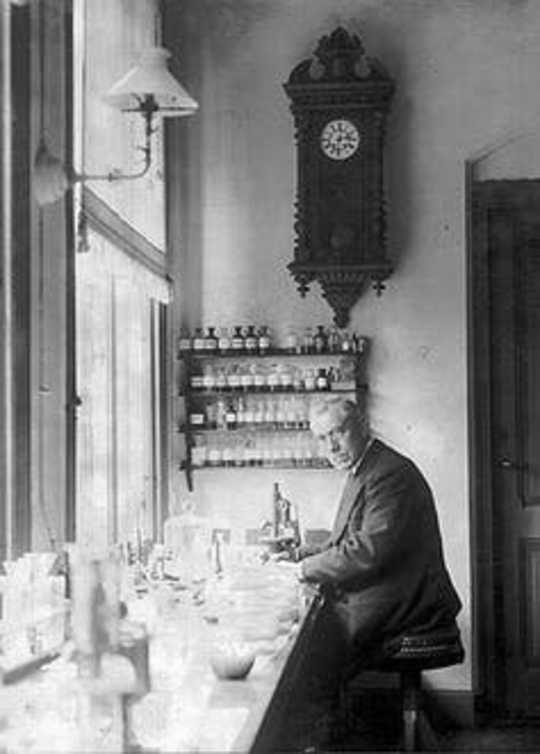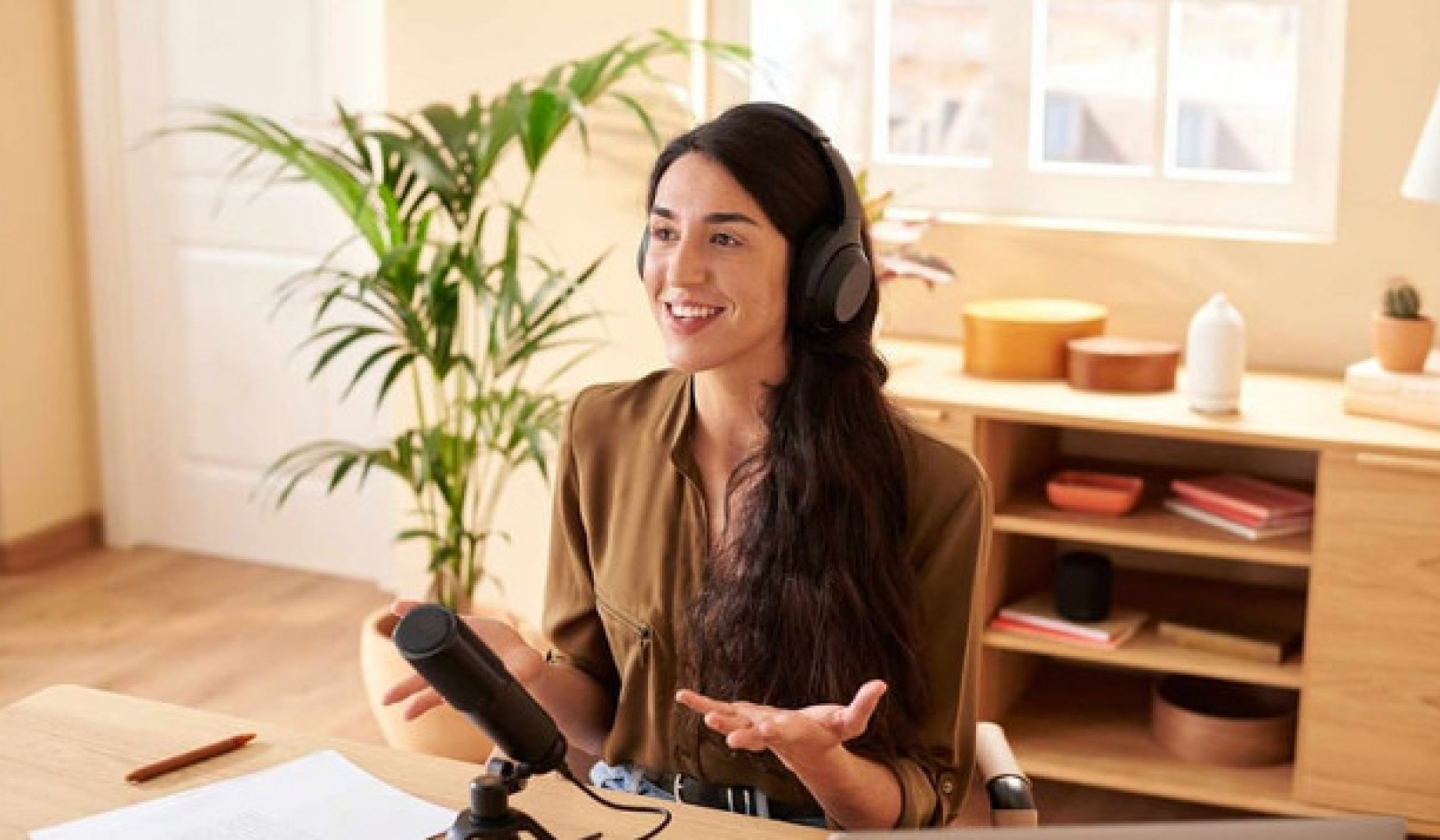 FOX News host Sean Hannity (pictured here in 2018) gave credibility to a tweet he read out lout on his popular syndicated radio show, which called COVID-19 a fraud “to spread panic in the populace, manipulate the economy and suppress dissent.” AP/Julie Jacobson
FOX News host Sean Hannity (pictured here in 2018) gave credibility to a tweet he read out lout on his popular syndicated radio show, which called COVID-19 a fraud “to spread panic in the populace, manipulate the economy and suppress dissent.” AP/Julie Jacobson
As the world continues to deal with the life-altering effects of the novel coronavirus, a small but not-insignificant number of individuals have been expressing their fears about COVID-19 through the language of government conspiracies and wild alternative health cures.
Last week, one online conspiracy network suggested that COVID-19 is an act of biological terrorism to attack Chinese trade. Last month, a popular online site said the virus was a hoax manufactured to induce global fear and would therefore be a boon to Big Pharma. A website based in Toronto claims COVID-19 is the result of 5G cellular networks plus the common cold.
Press TV, part of the state sponsored media in Iran, suggested “Zionists” were behind the spread. As recently as last week, some public officials in the United States government continued to underplay the seriousness of the virus.
As reported by the New York Times, popular conservative talk-radio host Rush Limbaugh called the virus a “plot by the Chinese,” and conservative commentator and FOX TV host Sean Hannity read and gave credibility to a tweet calling COVID-19 a fraud “to spread panic in the populace, manipulate the economy and suppress dissent.”
Why have conspiracy theories so readily circulated during the COVID-19 pandemic? What type of person believes medical conspiracy theories?
I research new religious movements. I decided to explore this question because of the ubiquity of conspiratorial thinking within some of these communities. What can belief in alternative theories tell us about ourselves?
What challenges might conspiratorial thinking, circulated online and in popular media, present to public health advocates in the coming year?
Conspiracy in the age of coronavirus
 Six years after Ivanovsky did his the first ‘virus’ experiment, Dutch scientist Martinus Willem Beijerinck (pictured in his lab in 1921), working independently in his laboratory, used the term virus. Delft School of Microbiology Archives, CC BY
Six years after Ivanovsky did his the first ‘virus’ experiment, Dutch scientist Martinus Willem Beijerinck (pictured in his lab in 1921), working independently in his laboratory, used the term virus. Delft School of Microbiology Archives, CC BY
Conspiracy theories connecting the COVID-19 pandemic to the state of Israel are flourishing. One source, part of a large global conspiracy community, claims the novel coronavirus is an act of Israeli bioterrorism.
The Anti-Defamation League in the United States, a leading anti-hate organization, has tracked a growing number of anti-Semitic conspiracies, which claim that Jews are either behind the COVID-19 pandemic, or stand to profit from it.
Jews have historically been blamed for global viral events, including the Black Death in the 1300s, which led to massive pogroms against European Jewry. The common narrative goes that people in the Middle Ages needed a scapegoat because they did not know about the germ theory of disease. However, 130 years after Russian microbiologist Dmitri Ivanovsky and Dutch scientist Martinus Willem Beijerinck (working independently) discovered the existence of viruses, Jews continue to take the brunt of conspiratorial blame.
Hoaxes in alternative medicine
 A photo of Jim Bakker delivering a sermon in 2005 in South Carolina. He’s being sued by the state of Missouri for selling a cure to COVID-19. No such cure exists. AP Photo/Charlotte Observer, Jeff Siner
A photo of Jim Bakker delivering a sermon in 2005 in South Carolina. He’s being sued by the state of Missouri for selling a cure to COVID-19. No such cure exists. AP Photo/Charlotte Observer, Jeff Siner
People seek alternative medicine for many reasons, including distrust of authority, consumer-centered individuality and the belief that the treatment will work. While no vaccine for coronavirus currently exists, that hasn’t stopped televangelist Jim Bakker from selling his colloidal silver tincture for US$125 a bottle. The state of Missouri has filed a law suit against Bakker alleging fraudulent treatment claims.
Infowars’ Alex Jones claimed a product called DNA Force Plus could help fight off COVID-19: it is currently on sale for US$89.95 for one month supply. Another popular supplement advocate suggests a cocktail of over 11 different supplements to combat coronavirus, costing over US$170 a month. Other purported cures include vitamin C dosing, faith healing and homeopathic vaccines. There is no evidence that any of these work.
As demand for alternative medicine grows, Canadian researchers recently looking at internet health scams found, most of the alternative products marketed online “either severely misrepresented the efficacy for the given health concern and/or had no strong scientific evidence?base to support their use as advertised.”
"Beware of claims for COVID-19 protection" https://t.co/9kwHS4Q51a via @RCInet
— Timothy Caulfield (@CaulfieldTim) March 19, 2020
NO, chiropractic adjustments won't help boost the immune system. Ditto naturopathic IV vitamin therapy and supplement bunk. Ignore the noise!
Since being declared a global pandemic, there is evidence that demand for alternative medicine has increased. Some alternative medicine has been shown to be effective, but many of the options being marketed today have not. As Timothy Caulfield professor of health law at the University of Alberta writes: trust in science is crucial right now.
Kenneth Copeland healed viewers of the coronavirus through their televisions last night. pic.twitter.com/8lwHufTIy4
— Right Wing Watch (@RightWingWatch) March 12, 2020
Who believes in conspiracy theories?
Conspiratorial thinking can be founded on legitimate concerns and transcends socio-economic, racial, educational and gender boundaries. This complicates our tendency to view conspiracies as perpetuated by tinfoil-hat wearing people.
A number of theories have been proposed to account for conspiratorial thinking.
University of Chicago political scientists Eric Oliver and Thomas Wood explored medical conspiracy theories. They found approximately 50 per cent of Americans believe in at least one general conspiracy theory, and more than 18 per cent believe in three or more medical conspiracies.
Writing in the Journal of the American Medical Association Internal Medicine, Oliver and Wood wrote:
“Although it is common to disparage adherents of conspiracy theories as a delusional fringe of paranoid cranks, our data suggest that medical conspiracy theories are widely known, broadly endorsed and highly predictive of many common health behaviours.”
Perhaps the explanation for the broad appeal of such theories points to something more fundamental to the experience of being human? When people talk about quarantines, hoarding and conspiracies, they can ignore the elephant in the room: death.
Research suggests that we use different management techniques to deal with the terror of death. Where sickness can act as a reminder of our finitude, simple health-management solutions can offer a sense of autonomy over our bodies.
This may explain why some conspiracy websites are downplaying the danger of COVID-19 to adults by focusing on the older age of the victims. In other words, pandemics are scary, and they remind us that we are mortal.
Even if medical conspiracies are mostly confined to the fringe, the effects of conspiratorial beliefs on public health may end up exacerbating the spread of the virus. People may continue to ignore quarantine orders. A future vaccine for COVID-19 may come up against a growing anti-vaccine movement. Will people continue to be receptive to anti-vaccine conspiracy rhetoric in the age of COVID-19?
Conspiracy theorists, like all of us, are trying to make sense of a complicated world. Having a sense of control against an ineffable source of power — which describes the novel coronavirus in many ways — may speak to some of our collective fears and motivations in the face of mortality. After all, nothing offers direct evidence of human finitude and frailty like a viral pandemic.![]()
About The Author
Jeremy Cohen, Doctoral Candidate, Religious Studies, McMaster University
This article is republished from The Conversation under a Creative Commons license. Read the original article.
Remember Your Future
on the 3rd of November
Learn about the issues and what's at stake in the November 3, 2020 US Presidential election.
Too soon? Don't bet on it. Forces are conniving to stop you from having a say in your future.
This is the big one and this election may be for ALL the marbles. Turn away at your peril.
Only You Can Prevent 'Future' Theft
Follow InnerSelf.com's
"Remember Your Future" coverage

Books Improving Attitude and Behavior from Amazon's Best Sellers list
"Atomic Habits: An Easy & Proven Way to Build Good Habits & Break Bad Ones"
by James Clear
In this book, James Clear presents a comprehensive guide to building good habits and breaking bad ones. The book includes practical advice and strategies for creating lasting behavior change, based on the latest research in psychology and neuroscience.
Click for more info or to order
"Unf*ck Your Brain: Using Science to Get Over Anxiety, Depression, Anger, Freak-Outs, and Triggers"
by Faith G. Harper, PhD, LPC-S, ACS, ACN
In this book, Dr. Faith Harper offers a guide to understanding and managing common emotional and behavioral issues, including anxiety, depression, and anger. The book includes information on the science behind these issues, as well as practical advice and exercises for coping and healing.
Click for more info or to order
"The Power of Habit: Why We Do What We Do in Life and Business"
by Charles Duhigg
In this book, Charles Duhigg explores the science of habit formation and how habits impact our lives, both personally and professionally. The book includes stories of individuals and organizations who have successfully changed their habits, as well as practical advice for creating lasting behavior change.
Click for more info or to order
"Tiny Habits: The Small Changes That Change Everything"
by BJ Fogg
In this book, BJ Fogg presents a guide to creating lasting behavior change through small, incremental habits. The book includes practical advice and strategies for identifying and implementing tiny habits that can lead to big changes over time.
Click for more info or to order
"The 5 AM Club: Own Your Morning, Elevate Your Life"
by Robin Sharma
In this book, Robin Sharma presents a guide to maximizing your productivity and potential by starting your day early. The book includes practical advice and strategies for creating a morning routine that supports your goals and values, as well as inspiring stories of individuals who have transformed their lives through early rising.
s























